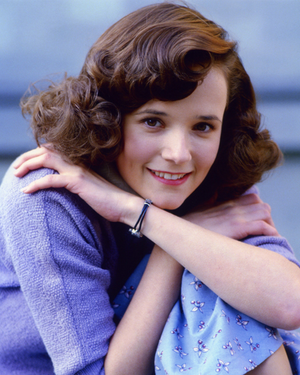- Joined
- Apr 30, 2015
- Messages
- 13,750
- Reaction score
- 13,052
Grok4:
Back to the Future (1985) isn’t directly based on Grecian mythology like The Odyssey or Oedipus Rex, but it shares thematic echoes with these ancient stories due to its use of universal storytelling archetypes. Let’s break it down:
Time Travel and Fate: In Back to the Future, Marty McFly’s journey through time to 1955 involves navigating a delicate balance to ensure his own existence, much like how fate and destiny are central to Grecian myths. In Oedipus Rex, Oedipus tries to escape a prophesied fate (killing his father, marrying his mother) but fulfills it through his actions. Similarly, Marty risks erasing his own existence by interfering with his parents’ meeting, creating a paradox he must resolve. Both stories explore the tension between free will and predetermined outcomes, a common theme in Greek mythology.
 The Hero’s Journey: The Odyssey follows Odysseus’ epic quest to return home, facing trials and transformations. Marty’s adventure in Back to the Future mirrors this: he’s thrust into an unfamiliar world (1955), faces challenges (ensuring his parents fall in love, escaping Biff), and returns home transformed. While not a direct adaptation, this structure aligns with Joseph Campbell’s monomyth, which draws heavily from Greek epics like The Odyssey.
The Hero’s Journey: The Odyssey follows Odysseus’ epic quest to return home, facing trials and transformations. Marty’s adventure in Back to the Future mirrors this: he’s thrust into an unfamiliar world (1955), faces challenges (ensuring his parents fall in love, escaping Biff), and returns home transformed. While not a direct adaptation, this structure aligns with Joseph Campbell’s monomyth, which draws heavily from Greek epics like The Odyssey.
Parental Dynamics: In Oedipus Rex, the parent-child relationship is central (albeit tragically). Back to the Future plays with this more lightheartedly—Marty interacts with his teenage parents, influencing their relationship and, indirectly, his own identity. The dynamic of a child shaping their parents’ fate flips the traditional Greek tragic model but echoes its focus on familial ties.
 No Direct Mythological Basis: Despite these parallels, there’s no evidence from Robert Zemeckis, Bob Gale, or other creators that Back to the Future was explicitly inspired by Grecian mythology. The film draws more from 1980s pop culture, science fiction (e.g., H.G. Wells’ The Time Machine), and universal storytelling tropes. Its time-travel mechanics and comedic tone are far removed from the solemnity of Greek tragedy or epic poetry.
No Direct Mythological Basis: Despite these parallels, there’s no evidence from Robert Zemeckis, Bob Gale, or other creators that Back to the Future was explicitly inspired by Grecian mythology. The film draws more from 1980s pop culture, science fiction (e.g., H.G. Wells’ The Time Machine), and universal storytelling tropes. Its time-travel mechanics and comedic tone are far removed from the solemnity of Greek tragedy or epic poetry.
Cultural Archetypes: The similarities arise because both Back to the Future and Greek myths tap into timeless human concerns—identity, destiny, and the consequences of actions. These archetypes make the film feel mythic, even if it’s not a direct adaptation.

Back to the Future (1985) isn’t directly based on Grecian mythology like The Odyssey or Oedipus Rex, but it shares thematic echoes with these ancient stories due to its use of universal storytelling archetypes. Let’s break it down:
Time Travel and Fate: In Back to the Future, Marty McFly’s journey through time to 1955 involves navigating a delicate balance to ensure his own existence, much like how fate and destiny are central to Grecian myths. In Oedipus Rex, Oedipus tries to escape a prophesied fate (killing his father, marrying his mother) but fulfills it through his actions. Similarly, Marty risks erasing his own existence by interfering with his parents’ meeting, creating a paradox he must resolve. Both stories explore the tension between free will and predetermined outcomes, a common theme in Greek mythology.

Parental Dynamics: In Oedipus Rex, the parent-child relationship is central (albeit tragically). Back to the Future plays with this more lightheartedly—Marty interacts with his teenage parents, influencing their relationship and, indirectly, his own identity. The dynamic of a child shaping their parents’ fate flips the traditional Greek tragic model but echoes its focus on familial ties.

Cultural Archetypes: The similarities arise because both Back to the Future and Greek myths tap into timeless human concerns—identity, destiny, and the consequences of actions. These archetypes make the film feel mythic, even if it’s not a direct adaptation.


